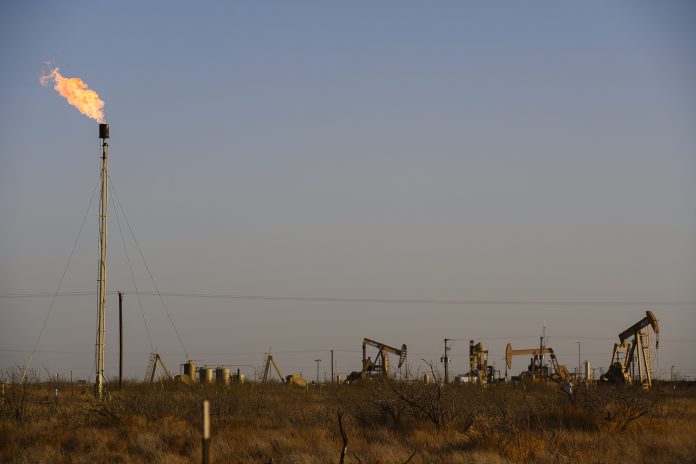
Libya has gained in importance with the global imperative of increasing oil and natural gas production, but the northern African country’s severe problems are keeping it from playing a constructive role.
Permian Basin International Oil Show President Larry Richards has worked there extensively and he says having the largest reserves in Africa sharpens the angst.
“Libya is one of few countries with over 500,000 barrels of swing production this year,” Richards said. “Equally important, being on the Mediterranean Sea it has easy transportation to an energy-starved European market and its production could be a decisive short-term asset this winter.
“Daily production fell from 1.2 million barrels in 2021 to 600,000 barrels a day or less over the summer due largely to infighting between rival groups in the eastern half of the country, the home of most of the oilfields, and the western half where Tripoli, political leaders and most oil companies are headquartered.”
Richards said some of Libya’s first oilfield equipment was built in West Texas.
Referring to his years as president-CEO of Hy-Bon Engineering in Midland, he said, “I received a call in late 2004 or early ‘05 from a gentleman in Tripoli who understood that we were the best company in the world for capturing flare gas.
“He’d been told that a few weeks earlier by another West Texas entrepreneur, Terry Eckel from Eckel Power Tongs in Odessa. Akakus Oil had several huge flares, the type you can see from a satellite, near a sensitive archaeological site and the soot was causing damage to the historical location.
“A few months later Hy-Bon was building what we were told was the first environmental oilfield project of its kind in Libya, capturing millions of cubic feet of flared natural gas and paying for itself in a matter of months.” Richards related an experience in 2005 that the U.S. Department of State said last month would be much more dangerous these days.
“I flew into Tripoli the first time with no entry visa and no hotel reservation, simply the name and phone number of the gentleman, who assured me he would meet me stepping off the plane,” he said. “After spending several memorable hours in the company of angry men with automatic weapons in the customs office of the Tripoli airport, my host eventually arrived and extricated me from a stressful situation.
“The next number of days, it seemed that time had literally stopped three decades before and had begun a slow deterioration from there.”
Richards went into his first meeting expecting to speak through an interpreter and with engineering drawings, but a happy confluence lightened the occasion.
“The National Oil Co.’s engineering manager asked in perfect English where I went to school,” he said. “When I replied, ‘Texas A&M,’ he said, ‘Ah, I went to UT. I watched the Rose Bowl four times!’ Luckily I had watched the Rose Bowl, so we bonded over Texas football.”
As it turned out, Richards said, most of the senior managers in Libya’s oil industry had gotten their degrees at UT, the Colorado School of Mines, Texas A&M and other top-ranked American petroleum engineering schools in the U.S.
“Several told me they were thrilled to have the Americans back and stated that the equipment they had purchased in the 1970s and 80s from the U.S. was still working better than equipment purchased from China or Italy the previous year,” he said.
In its current travel advisory, the State Department flatly tells Americans not to go to Libya. “Crime levels remain high including the threat of kidnapping for ransom,” it says. “Violent extremist activity remains high and extremist groups have made threats against U.S. government officials and citizens. Terrorists may attack with little or no warning, targeting tourist locations, hotels, transportation hubs, markets, shopping malls and government facilities.
“The capital, Tripoli, and other cities such as Surman, Al-Jufra, Misrata, Ajdabiya, Benghazi, Sabha and Dernah have witnessed fighting among armed groups as well as terrorist attacks. The U.S. government is unable to provide emergency or routine assistance to U.S. citizens as the U.S. Embassy in Tripoli suspended its operations in July 2014.”
Before the country fell into anarchy, Richards said, he made numerous trips there and visited the oilfields at Tripoli and Benghazi.
“Unlike many places I’ve traveled, I respect their engineering acumen and their work ethic and dedication to family,” he said. “I’ve made some good friends there and it breaks my heart to see the civil strife and bloodshed they are enduring.
“The world needs Libyan oil and gas this winter and the Libyan people need their leaders to put old hatreds and feuds behind and unite as a resource-rich country for all their citizens.”



